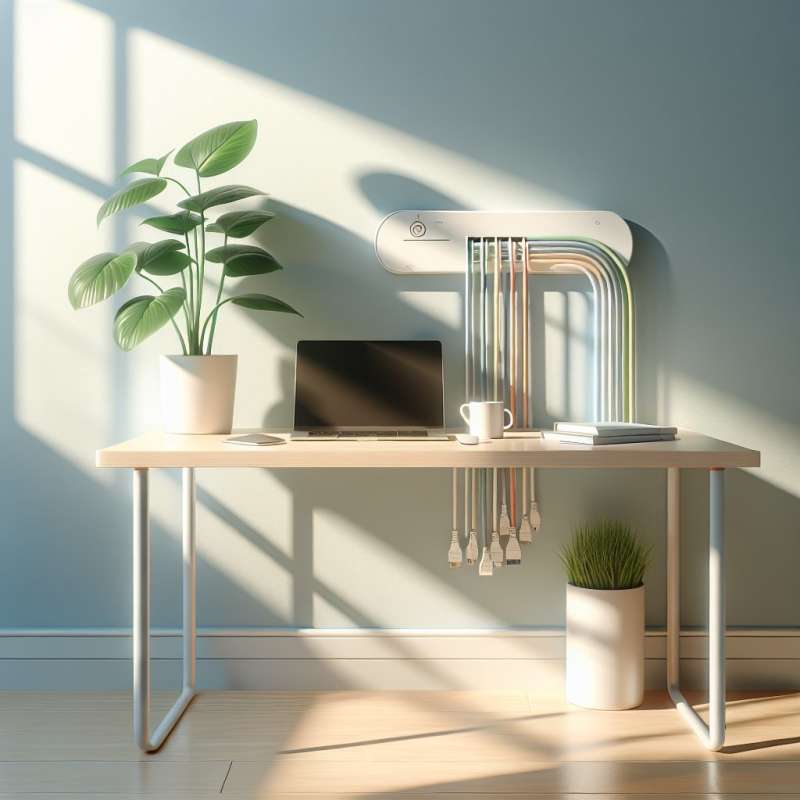
Desk Organization Psychology
Research suggests clutter can increase stress and hinder focus. A clean desk promotes a serene mind, leading to greater productivity and enhanced creativity. Physical order helps manage information and guides efficient workflow.
Declutter Regularly
Start by purging unnecessary items. If something hasn’t been used in the past three months, it's likely not essential. Adopt a minimalistic approach to keep only what you need within arm's reach, fostering a distraction-free environment.
Zonal Desk Layout
Divide your desk into zones. The primary zone is for items you use constantly, like your computer. The secondary zone holds items you need occasionally. Anything rarely used should be stored away from the desk to maintain a clear workspace.
Ergonomic Arrangement
Organize for comfort and health. Position your monitor at eye level, about an arm’s length away. Keep frequently used items like the phone or notepad on your dominant side to minimize reach and reduce muscle strain.
Cable Management
Tangled cables are more than an eyesore; they can be distracting and cause unnecessary stress. Use cable organizers or clips to keep cords neat and accessible. This simplifies cleaning and promotes an uncluttered space.
Personal Touch
Incorporate personal items that spark joy and motivate you, like photos or a plant. However, limit these to avoid clutter. Personalization should not compromise the functionality and professional look of your workspace.
Maintenance Habit
End your day with a 5-minute desk tidy-up. This habit ensures you start the next day with a clear desk and a focused mind. Regular cleaning also prevents the build-up of clutter and maintains an organized workspace.
What does a clean desk promote?
Increased stress levels
Serene mind, productivity, creativity
Frequent item misplacement
Company